Rolling Stone story: ‘Hungry Kids of Hungary Get Serious’, February 2013
A story that was published in the March 2013 issue of Rolling Stone Australia. Click the below image for a closer look, or read the article text underneath.
Hungry Kids Of Hungary Get Serious
Personal tragedies and isolation inform the Brisbane band’s second album
A band that writes a debut album brimming with sunny indie pop songs can be reasonably expected to write more of the same for their follow-up. Such was the situation in which Brisbane’s Hungry Kids of Hungary expected to find themselves following 2010’s Escapades, which hit a sweet-spot between classic Sixties-era pop and their modern take on the form. Real life has a habit of intervening, though.
In March 2011, the four-piece – Dean McGrath (lead vocals, guitar), Kane Mazlin (lead vocals, keys), Ben Dalton (bass) and Ryan Strathie (drums) – were booked for a three-week tour in North America, including showcases at South By South West and Canadian Music Week – great opportunities to extend the band’s growing reputation overseas. Then, suddenly, all shows were cancelled and the band was homeward bound.
“2011 was a pretty full-on year for me,” says McGrath, whose experience triggered the return journey. “A lot went down. Naturally, that really coloured the songs I was writing.” He won’t be drawn on specifics, but notes that a “personal tragedy that affected someone I was close to” meant that he had to catch the next flight home.
“That incident echoed throughout the whole year for me,” the singer/guitarist continues. “It was an ongoing ordeal. It’s funny; writing songs for this band, we’ve always been fairly carefree, but after that [experience], these songs started coming out that were fairly intimate and personal. I was like, ‘shit, how are people going to react to this when they hear it?’”
The result is You’re A Shadow, a collection of songs somewhat divorced from Escapades’ brimming optimism. Kane Mazlin’s contributions were coloured by a sense of isolation and melancholy, too, in part influenced by a stint in Denmark while his girlfriend took an internship. “She was busy during the day. I was by myself: I didn’t speak Danish, didn’t know anyone,” he says, over a beer in late December. “That had a huge impact on two or three of the songs that I wrote.”
It wasn’t all bad news internationally, though: footage filmed at the Dutch festival Pinkpop in May 2012 shows the band performing before a crowd of thousands. “The Netherlands seems to be the area where it’s taken off, which is weird,” says McGrath. “When we started talking about doing overseas stuff, that’s not really the area that we imagined we’d be delving into.” Mazlin chimes in: “I think Nirvana started there, didn’t they? It’s a goldmine!”
After the rush of Pinkpop, though, it was an abrupt comedown in Belgium. The band played that show – “a giant blur of fun” is how Mazlin describes it – and then drove half a day to Antwerp. “We played a tiny show there, where no-one knew who we were,” says McGrath. “We were like, ‘what the hell? We only drove for a few hours, why don’t people know us here if they know us there?’ You forget that it’s a different country! We crossed a border, and they don’t get the same radio [stations]. Touring Australia has conditioned us to think that it’s natural to drive a few hours to get to the next big city!”
When it came time to choose which tracks made the new album, the four tended not to argue too much about what made it past the rehearsal room. “We do try to keep it to four equal votes, but if two of us feel really passionately about something, then the other two will probably either give it a go, or scrap it,” says McGrath. “Song-wise, we haven’t had to do that a lot leading up to this record, because we’ve seen eye-to-eye on most things without any need for debate – which makes life easier.”
Five things that influenced You’re A Shadow
Classic pop
Kane Mazlin: “I listened to a lot of Camera Obscura, The New Pornographers and The Shins; really nice, classic-sounding pop records with great guitar sounds.”
Live quintet
Dean McGrath: “Knowing that there’s a second guitarist during live shows drastically affected the way that I write my parts – it’s not so chordal, busy and strummy.”
Debut co-write
Mazlin: “We were on the same wavelength this time, to the point where we were able to co-write a song, ‘When Yesterday’s Gone’ – something we’d never done before.”
Deerhunter
McGrath: “I listened to Halcyon Digest on repeat for months, and it heavily influenced how we recorded a few songs in the studio: that ‘lo-fi pop songs, washed out’ approach.”
Producer Wayne Connolly
Mazlin: “He had great ideas from the very first email: he told [bassist] Ben Dalton, ‘you need a hollow-body bass and flatwound strings’. It sounded awesome!”
 Three stylistic decisions have shifted Sydney act PVT – formerly known as Pivot – from a great band to a good one.
Three stylistic decisions have shifted Sydney act PVT – formerly known as Pivot – from a great band to a good one.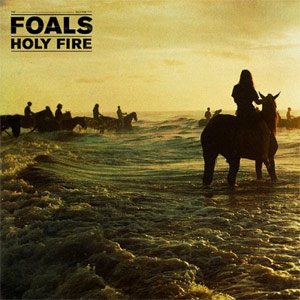 By merging dance-floor beats with finicky guitar theatrics on their 2008 debut album, Antidotes, this British band emerged with a singular vision.
By merging dance-floor beats with finicky guitar theatrics on their 2008 debut album, Antidotes, this British band emerged with a singular vision. It takes a long time to make music sound as good as m b v does. About 22 years, in fact.
It takes a long time to make music sound as good as m b v does. About 22 years, in fact.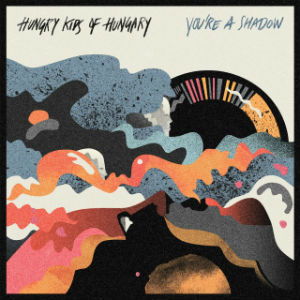 Hungry Kids of Hungary’s 2010 debut, Escapades, gave a strong portent of the songwriting and musical ability lurking within.
Hungry Kids of Hungary’s 2010 debut, Escapades, gave a strong portent of the songwriting and musical ability lurking within.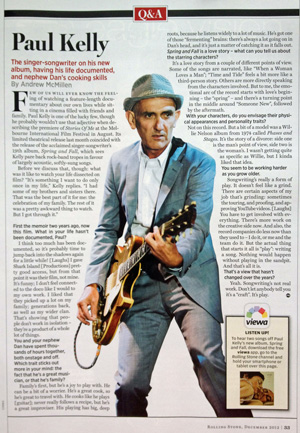
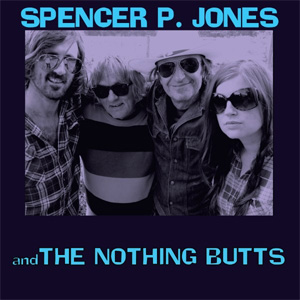 For Australian rock fans, this supergroup is a match made in heaven: two members from Beasts of Bourbon and two from The Drones combining to make a beautiful racket.
For Australian rock fans, this supergroup is a match made in heaven: two members from Beasts of Bourbon and two from The Drones combining to make a beautiful racket. The third full-length album released by this young Canadian electronic duo lacks the immediate sonic punch that made their first two albums such compelling listens.
The third full-length album released by this young Canadian electronic duo lacks the immediate sonic punch that made their first two albums such compelling listens.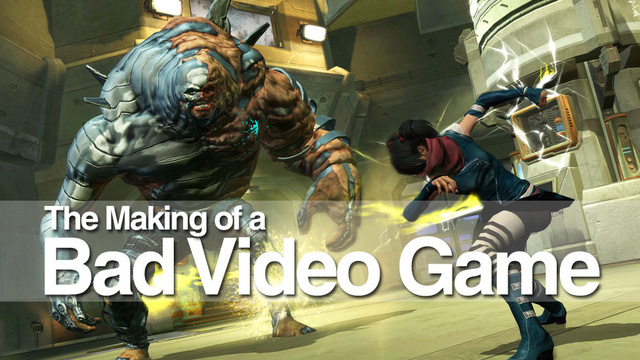
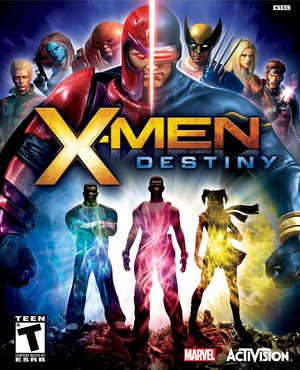 It’s not as if Silicon Knights was some untested, fly-by-night developer brought on to quickly crank out just another licensed title. Founded in 1992 by current company president Denis Dyack, the St. Catharines, Ontario-based company is best known for their 2002 GameCube hit Eternal Darkness: Sanity’s Requiem, which scored a “universal acclaim” score of 92 on Metacritic, based on 41 reviews. The company’s 2004 Metal Gear Solid remake, The Twin Snakes, scored 85 across 54 reviews. And while Silicon Knights’ 2008 Xbox 360 release Too Human averaged a sub-par score of 65, the company’s history still suggested it could produce good games.
It’s not as if Silicon Knights was some untested, fly-by-night developer brought on to quickly crank out just another licensed title. Founded in 1992 by current company president Denis Dyack, the St. Catharines, Ontario-based company is best known for their 2002 GameCube hit Eternal Darkness: Sanity’s Requiem, which scored a “universal acclaim” score of 92 on Metacritic, based on 41 reviews. The company’s 2004 Metal Gear Solid remake, The Twin Snakes, scored 85 across 54 reviews. And while Silicon Knights’ 2008 Xbox 360 release Too Human averaged a sub-par score of 65, the company’s history still suggested it could produce good games.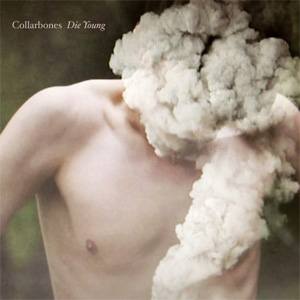 What we have here is an original and compelling take on pop music viewed through the lenses of electronica, R&B and hip-hop.
What we have here is an original and compelling take on pop music viewed through the lenses of electronica, R&B and hip-hop. The trouble with releasing a killer debut album is that it’s much harder to impress with the follow-up.
The trouble with releasing a killer debut album is that it’s much harder to impress with the follow-up.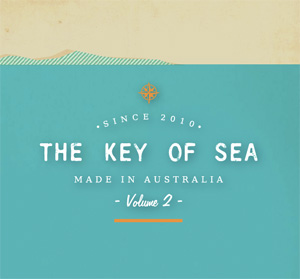 Some might say rock musicians are more readily associated with egotism than altruism, yet this collection is the second in a series that seeks to buck that stereotype.
Some might say rock musicians are more readily associated with egotism than altruism, yet this collection is the second in a series that seeks to buck that stereotype.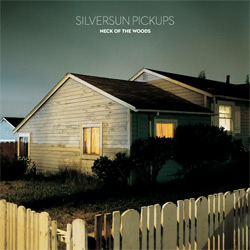 Where many rock bands fail, Silversun Pickups succeed: through effective use of space, volume, melody and harmony, this Los Angeles quartet conjures unique emotions within the listener that make the timeworn combination of guitars, bass, drums and vocals seem fresh.
Where many rock bands fail, Silversun Pickups succeed: through effective use of space, volume, melody and harmony, this Los Angeles quartet conjures unique emotions within the listener that make the timeworn combination of guitars, bass, drums and vocals seem fresh. These 10 sparsely adorned songs represent a significant shift for Perth-based songwriter Joe McKee, who fronted the West Australian quartet Snowman for eight years until their amicable split in 2011.
These 10 sparsely adorned songs represent a significant shift for Perth-based songwriter Joe McKee, who fronted the West Australian quartet Snowman for eight years until their amicable split in 2011.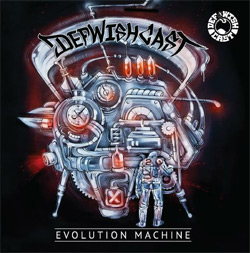 What we now take for granted once existed only on the fringes of popular music.
What we now take for granted once existed only on the fringes of popular music.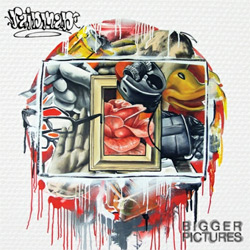 Too often, young Australian rappers fall into the same lyrical pitfall: with little life experience to speak of, they instead take the dubious advice of “write what you know” too literally by couching their artistry in recording alcohol and drug-fuelled tales ad nauseam.
Too often, young Australian rappers fall into the same lyrical pitfall: with little life experience to speak of, they instead take the dubious advice of “write what you know” too literally by couching their artistry in recording alcohol and drug-fuelled tales ad nauseam.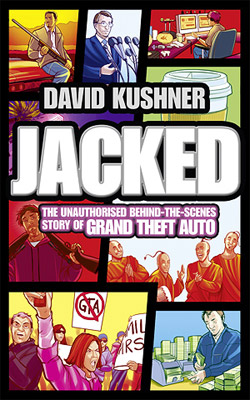 ‘GRAND Theft Auto revolutionised an industry, defined one generation, and pissed off another, transforming a medium long thought of as kids’ stuff into something culturally relevant, darkly funny, and wildly free,” David Kushner writes in his second video game-themed book.
‘GRAND Theft Auto revolutionised an industry, defined one generation, and pissed off another, transforming a medium long thought of as kids’ stuff into something culturally relevant, darkly funny, and wildly free,” David Kushner writes in his second video game-themed book.
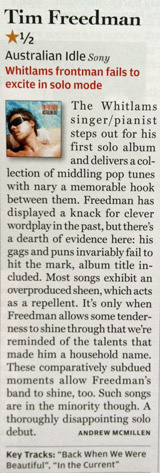 Tim Freedman
Tim Freedman 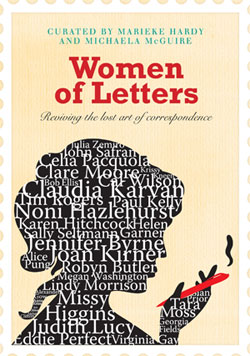 A fine cross-section of humanity – largely womankind – is on display in Women of Letters, a book born from a series of live letter reading and writing events “celebrating wine, women and words” in eastern capital cities in 2010.
A fine cross-section of humanity – largely womankind – is on display in Women of Letters, a book born from a series of live letter reading and writing events “celebrating wine, women and words” in eastern capital cities in 2010.